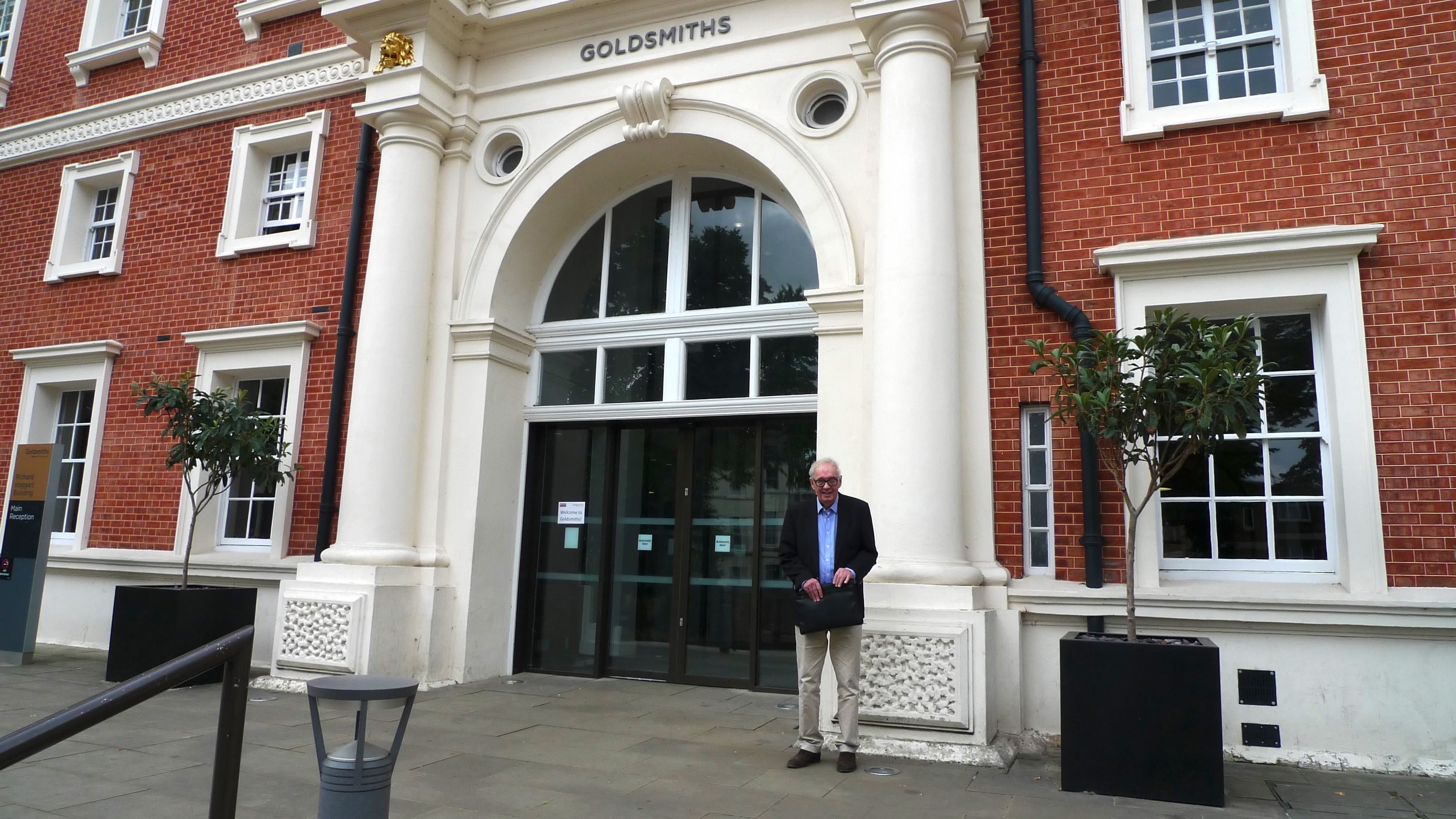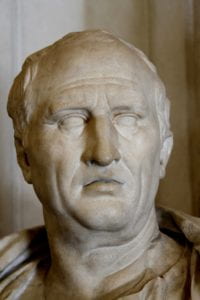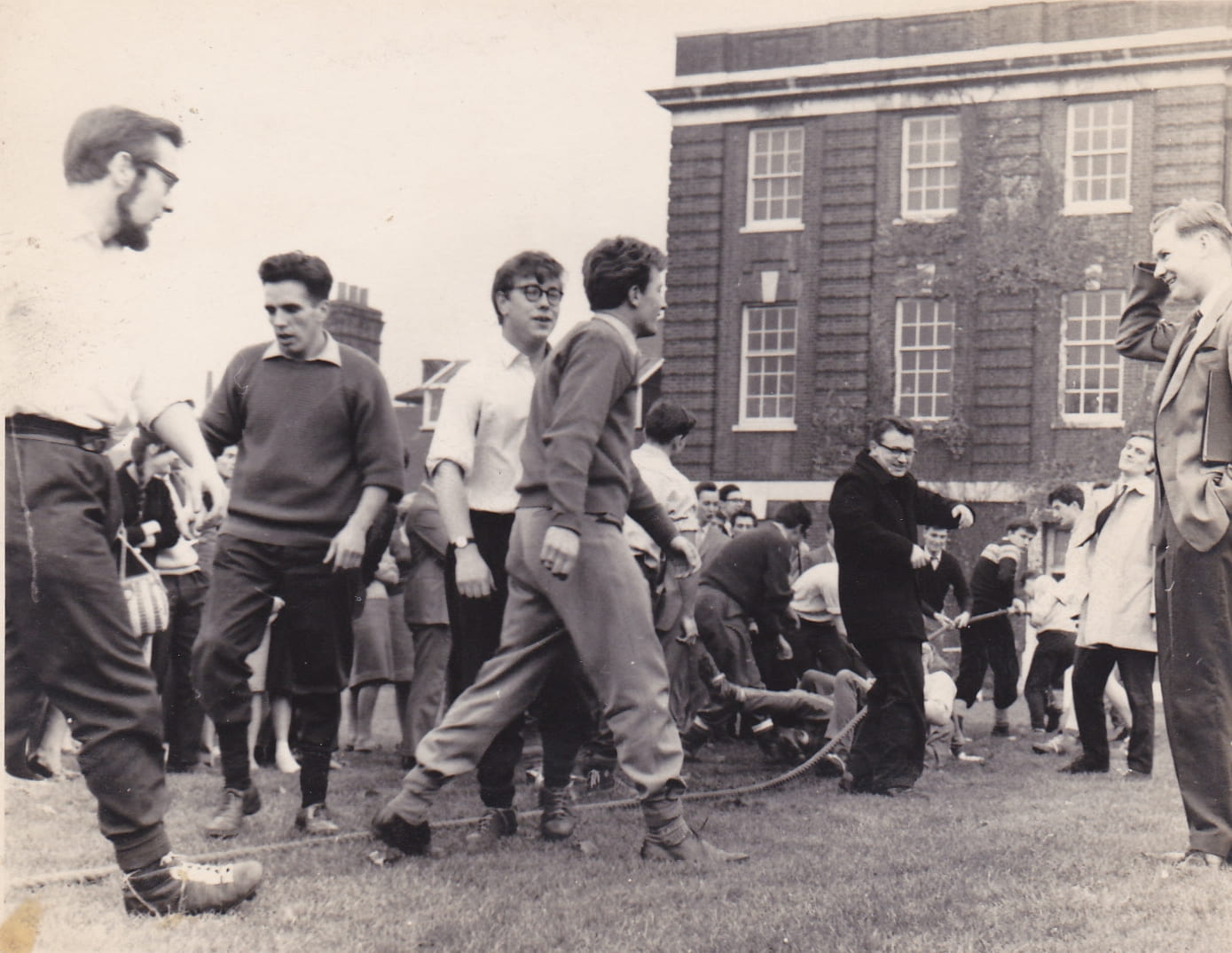
David Rogers at the entrance to Goldsmiths, University of London Richard Hoggart Main Building- named after a Warden he knew, liked and worked for. Image: Tim Crook.
It cannot be said that David Rogers has everything in common with Marcus Tullius Cicero, the Roman statesman, orator, lawyer and philosopher who lived from 106 BC to 43 BC, and was a consul of the Roman Republic.
But it certainly can be said he has something in common.

Bust of Cicero. Image: José Luiz Bernardes Ribeiro / CC BY-SA 4.0
He has not been a lawyer. He may not have been a statesman in the foreground. But such people equally depend on their shadow researchers, speech-writers and political advisors- in other words statesmen in the background.
David made his mark at Goldsmiths’ College between 1958 and 1960 leading the College’s debating team to win the University of London debating cup for the first time in ten years and beating la crème de la crème of the top notch University of London colleges.
It was the underdog beating the favourites. A Football League Division Two side from South London- the University of London federation’s then only satellite College South of the River, beating the Champions of the Premiership.
So Cicero has gone down as Antiquity’s Orator supreme, celebrated and heralded through the Renaissance and Enlightenment and a centre of gravity for the academic discipline of rhetoric.
And David Rogers can truly be accorded the title of Goldsmiths’ Cicero.
The debating champion
His Goldsmiths team included Roger Mackay, Malcolm Laycock and Anne Castledine, and they beat in order the mighty UCL of Bloomsbury, Westfield, Royal Holloway, and then Westminster Medical School in the final.
